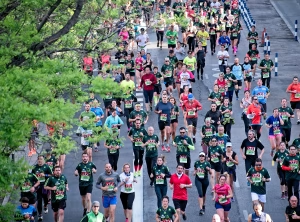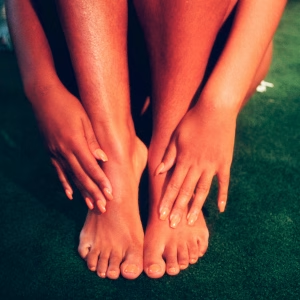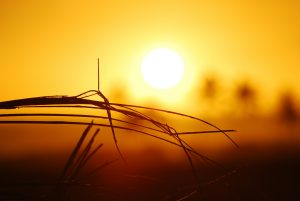Heart Disease
Is Coffee Good for the Heart?

I recently read this article from New York Presbyterian on whether caffeine is good for heart health, citing recent scientific research findings that coffee can reduce the risk of heart failure, atrial fibrillation, and type 2 diabetes.
Of course, I have to weigh in… first by thanking NYP for the impetus and content material—even if we come from different paradigms of thought, science, in my opinion, is entitled to nothing if not thoughtful, yet vulnerable debate.
As everyone who adds one, two, or more teaspoons of sugar to their daily coffee knows, coffee is a bitter agent, and in Chinese medicine the directional chemistry of bitter medicines and/or foods is downward—down and out to be specific—evidenced in the bowel movements that are so common after one, two, or more cups of coffee in the morning. Is bitter medicine healthy? Sure, about half the population will gain more physiological benefit than harm from bitter herbs. The other half might experience the short-term benefit of bitters’ ability to reduce local inflammation, but in the long run it may harm their microbiome and ability to absorb nutrients, which in the longer run will create more inflammation.
“Give her more bitters!” the foolish clinician will shout. “Reduce her inflammation!”
But that second time around she is older and weaker—those initially experienced benefits seem inaccessible, and conventional medicine might increase dosages or attempt to potentiate the first medicine’s effect with another anti-inflammatory, and before we know it all gastrointestinal functionality is gone.
According to the FDA about 4 cups of coffee per day is considered safe for most healthy adults. I don’t know about you, but I can say with full confidence if I drank 4 cups of coffee a day for a month, I would develop some kind of health crisis by the end of it.
My opinion is the reason conventional medical research seems to waffle back and forth so much—during one generation coffee’s the villain—next generation it is alcohol—is because of its greatest flaw: Its insistence on attempting to objectify things as healthy or not, good or bad.
Bitter diuretics have a drying effect on the body, so if you are someone who has more pathological biofilms than deficiency of blood and vital enzymes, you may benefit from coffee in moderation. If you are the inverse, it can have the opposite effect. You might mitigate this by having coffee with food, which can provide enough metabolic moisture to offset its bitter diuresis.
A good way to know whether coffee is good for you is to observe how your body responds to it. If it gives you heart palpitations or makes you feel racy, then 2-4 cups per day will likely not benefit your long-term heart health. The same goes for if it causes you soft stool. If coffee is your key to regular, formed bowel movements then its bitter biochemistry likely agrees with you. If it gives you diarrhea it tells us your gut is a bit too lacking in enzymes to properly metabolize it—not to mention the fact that diarrhea further depletes such enzymes, which will inevitably impact the heart over time, ironically.
Many doctors and scientists are brilliant but in my opinion their brilliance is often handicapped by a reductionist lens. If you want to know if coffee is good for your heart one of the best people to ask is yourself. Or a (real) herbalist.
Acupuncture Post-NYC Marathon

The NYC marathon was this past weekend, and approximately 55,000 people pursued an admirable goal, reached a self-defined mountaintop, and in the process may have caused some degree of irreparable damage to their knees and/or hearts.
Although running is not the most advisable form of exercise in Chinese medicine, it is my opinion that for most people in moderation its benefits outweigh its pitfalls, helping to improve stamina and cardiovascular health, promote circulation, and in most months out of the year a healthy, non-excessive amount of perspiration.
But just like too much perspiration ends up negating its benefit by leaching the anti-inflammatory molecules and neurotransmitters contained within it, too much running can cause more harm than good—excess sweat being just one form of it.
While I struggle to disidentify as anything but a metropolitan, I also know that humans were not intended to walk, let alone run, on cement. That concrete is an inorganic, manmade endeavor, a luxury but challenge of modern society—good for capitalism, bad for Daoism.
Repeated pounding on the knees depletes their synovial fluid, the cushioning between bones and lubrication around tendons and ligaments that keep them soft, pliable, protected. Two ways to mitigate this effect is through stretching, that is opening the vessels and collaterals that send fluids to the patellae, but also with treatment.
Local acupuncture where fluid is missing cannot offer very much, but local moxibustion can inhibit NF-kappa B (inflammatory) signaling pathways, thereby dilating local vessels enough to attract white blood cells and healthy fluids. What’s more, “sports medicine” treatment around the neuromuscular paths that surround the knees can have a similar effect. Rectus femoris, biceps femoris, vastus medialis and laterali—basically, invigorate the thighs to unburden the bones.
As for the heart, this is obviously a serious issue. Excess exercise is arguably just as hard on the body as no exercise. It is important that we all find our own unique sweet spot in the middle and engage with discipline each week. For the excess inflammatory type, who drips with sweat, whose face turns red during workouts, who over-indulges and over-extends, the best recovery formula after a marathon will likely be Bai Hu Jia Ren Shen Tang, or White Tiger and Ginseng Decoction, with gypsum stone to clear the inflammatory heat that can overstimulate the heart, plus ginseng, licorice, and that’s right, white rice, to prevent further heat from flaring.
For the more typical runner type, thin and pale, who gets easily cold and prone to getting sick or injured, a potential recovery formula is Gui Zhi jia Gui Tang, or Cinnamon Twig Decoction with licorice, ginger, red dates, and extra cinnamon to strengthen and warm the chest.
Wishing everyone a speedy recovery, whether from the madness of marathon running or that of trick-or-treating. Stay warm and take care, especially en route to the holidays!
What do Gout, Varicose Veins, & Neuropathy Have in Common?

What do neuropathy, gout, and varicose veins have in common? In western medicine not much, aside from being awful inconveniences, ranging from sources of extreme pain to discomfort and/or a significant cosmetic preoccupation.
For neuropathy you go to the neurologist, for gout to the rheumatologist, and for varicose veins you might see your primary care, who will likely refer you to a vein specialist. The neurologist may or may not inquire about venous circulation, and it is very unlikely the rheumatologist will ask about numbness or tingling in your feet.
But from a Chinese medical perspective, all of these conditions fall under the heading of impaired circulation in the lower extremities, caused by either weakness, inflammation, or both, leading to a misdistribution of bodily fluids, which exacerbates the former, which exacerbates the latter, and so on.
They are different in specifics only as a result of individual genetic proclivities—in fundamental mechanism they are the same. Someone with a colder bodily constitution—prone more to hypothyroid or hypotension, will be more susceptible to varicosities, whereas people with warmer body types—prone more to hyperthyroid or hypertension, will be more susceptible to gouty arthritis. The former are well advised to eat plenty of lamb and red meat, while the latter might consider being mostly vegetarian.
Neuropathies can go either way in the way of temperature, as they are more telling of issues with fluid metabolism. We find that neuropathy patients are either unusually thirsty, unusually not thirsty, or they urinate excessively or not enough. In either case, their body is clearly weakened to some degree, and it is imperative they get to sleep by 11pm, so nerves can properly regenerate.
While inadequate urination obviously leads to fluid retention which can clog neurological pathways and impair circulation, excessive urination can dry vessels of their healthy synovial fluids, causing us to feel parts of our body we previously took for granted as being unaware of.
Holistic medicine should modulate the organ function that is causing the improper excretion of fluids in addition to treating local blockages causing pain or discomfort. Easier said than done of course, as such conditions generally took many years to form, plus might be aggravated by present challenges, such as diet, stress, or medications being used to treat other conditions. However, through a course of treatment of acupuncture, herbal medicines, and dietary modifications, one should see improvement over a proper course of treatment, 120 days.
Please be discerning in your choice of clinician. If you see someone—whether east or west—who is failing to assess or treat beyond the immediate site of pain or discomfort, I would highly recommend getting a second opinion.
These Longest Days of the Year

Welcome to the Tai Yang time of year. Say that three times fast, and maybe add “Thank You,” to complete the trifecta, TYTYTY! “Tai Yang” means the most yang, as we enter the longest days of the year, leading up to the summer solstice next week, at which time days will begin to very gradually, grow shorter.
Until that time we might be more vulnerable to “yang pathogens,” exemplified by inflammatory heat and/or “external invasions,” which is probably why we see a minor uptick in Covid cases around this time each year, despite the warm weather which should mitigate such spread. More common are the former, symptoms of “heat rising,” a la insomnia, anxiety, palpitations, acid reflux, constipation, headaches, and ANGER!!! If you’ve noticed an exacerbation in any such signs within yourself, rest assured, it is normal for the time of year and relatively wane after June 21st. If it doesn’t, see a doctor, and/or myself.
Some of the things we can do to cool excessive yang rising include green tea in the mornings (after breakfast), then peppermint or chrysanthemum teas at night, snacking on watermelon, cucumbers, and celery, and minimizing spicy foods and alcohol. Most importantly, sweat!
In Chinese medicine we treat most “Tai Yang disease,” or viral pathogens through moderate sweating—underscore moderate for you high intensity athletes—and as the weather now is increasingly humid to begin with, it is important to sweat, just a bit every day.
The Tai Yang time of day is mid-day, around noon, which makes that window optimum for exercise—although as I often advise my busy patients, the truly best time to exercise is whenever you have time. ‘Tis better to do imperfectly than not do at all.
Although I am admittedly a slave to air conditioning for sleep, it is obviously manmade, unnatural, and ultimately not physiologically (or environmentally) beneficial. In the humid climate of summer, the contrived cold air traps pathogenic fluids at the exterior, or “Tai Yang layer” of the body, thereby exacerbating local inflammation, often inducing skin/joint conditions, and compromising immune function. I recommend using it as minimally as possible and/or wearing a scarf or long-sleeves while in offices or public transportation that insist on killing us slowly. And spend as much time outdoors as possible. We are all too deprived of it these days.
Happy Father’s Day!
Does Acupuncture Treat Heart Disease?

According to the Centers for Disease Control and Prevention, heart disease is the leading cause of death for men and women in the United States. And ethnicity doesn’t matter, as people of all racial and ethnic groups are impacted. With such serious statistics, many might wonder what treatment options are available. Did you know that acupuncture can help with treating heart disease, as well as many of its contributing factors? Read on to learn how. continue reading

